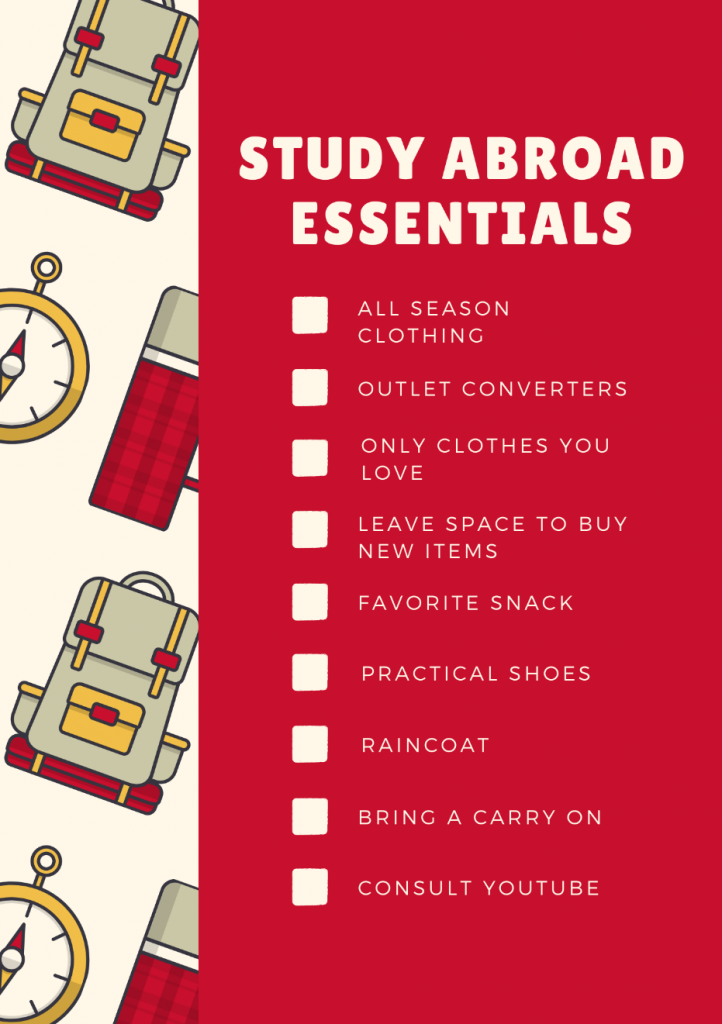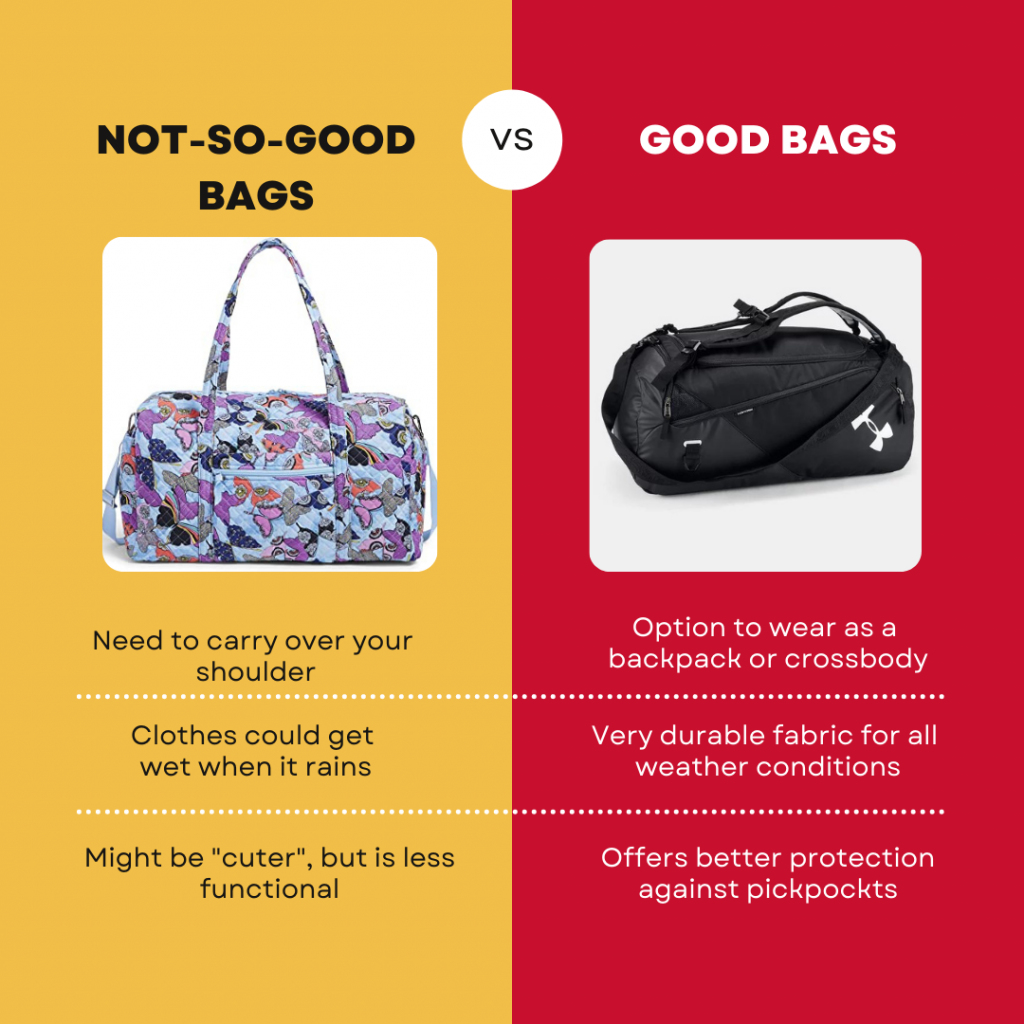All U.S. and non-U.S. citizens need a valid passport both to travel outside the United States and to return. Some countries may also require a visa that allows you to enter and remain in that country to study.
Preparing to Travel
If you don’t already have a passport and are planning to study abroad, you should apply as soon as possible. Processing times for new passports can take up to 12 weeks for routine service. If you do already have a passport, be sure to check the expiration date as renewing your passport can take just as long. Your passport must be valid for at least six months after your return date.
Passport information and applications are available on the U.S. Department of State website.
The College of Liberal Arts and Sciences provides support for LAS students who are first time passport applicants planning to study abroad. To apply for a passport award, visit here.
Upon receiving your passport, you need to sign it and enter your emergency contact information. We also advise taking a few photos of your passport information page in case of emergencies or a lost or stolen passport.
A visa is a formal authorization to enter, leave, and stay in a country. Some countries will require a student visa in order to study for a period of time. A passport is required in order to apply for a visa. Cost and requirements for applying for a visa vary and you should determine the visa requirements for all countries you plan to visit while abroad. If you do not obtain the proper visa requirements for a country, you may be denied entry.
Packing resources
Packing to study abroad can be intimidating, especially if you are studying for an extended period of time. How do you pack your entire life into a 50 lbs weight limit?
The LAS Study Abroad office wants to help out and provide some general ideas of what to include and how to maximize your space.
Our largest encouragement is that you examine weather trends in your country and pack clothes for all seasonal possibilities during your time abroad. Our checklist below is certainly not complete, but it can help minimize some of the mysteries of studying abroad.
YouTube videos
Other experienced travelers can provide insight like this video explaining what NOT to pack or this video showing general packing tips to maximize the space in your suitcase.
Packing lists
We created our own gender-neutral packing list to make things easier and help you determine what essentials you’ll need. If you’re looking for more inspiration, study.eu has good resources as well.

Capsule closet
If you really love clothes and can’t minimize your wardrobe, consider a “capsule closet” for packing. These minimalist outfits reduce your clothes to only the mix-and-match essentials and can help when trying to decide what you really need while abroad.
Baggage
If you have never traveled before, it can be difficult to determine which bag to bring. Usually, semester students will want one large roller bag for most of their clothes, a carry-on and a bag for weekend travel (sometimes this is your carry-on). If you are considering a duffle bag, we STRONGLY DISCOURAGE ones without backpack straps. Students often walk a lot on their weekend trips and find roller bags and duffle bags a hassle to drag with them.

Classic options for a large rolling bag include TJ Maxx, Kohl’s, Nordstrom Rack, etc.
Good places to find adequate size weekend backpack/duffels include REI, Scheels, Osprey packs, Lands’ End, LL bean, Patagonia, Baboon to the Moon, etc.. It is also a good idea to consider a bag where the zippers go against your back to decrease the chance of pickpocketing.
First-time travelers
Before you leave
- Remember to pack light. A good rule to keep in mind is if you can’t lug it up a flight of stairs comfortably, you’re probably filling up your suitcase with more than you can handle. Keep in mind that airports can be unpredictable and you may have to move quick. We can promise you no extra pairs of shoes are worth you missing a connection flight.
- Before you leave, make sure that you have copies of both your passport and visa (if required) just to have all your bases covered.
- Make sure and exchange some money before you leave just so you’ll always have emergency cash on you. Exchanging money may be more difficult than you expect depending on where you are studying so it’s always good practice to come prepared.
- We recommend exchanging some cash to your destination’s currency before you leave. Although credit cards are more accepted around the world, you may still have some encounters during your first days where cash would be more convenient. Currency can be exchanged at your bank or credit union. Be sure to do this in advance as it may take a few business days to have your destination’s local currency in hand.
While you’re traveling
- Pack some light food for the long flight or in case you have a short connection.
- The worst thing that can happen if you arrive too early to the airport is smelling fast food for hours on end. The worst thing that can happen if you arrive too late is being stranded in the airport for days being unsure what your next move may be. Plan on getting to the airport early.
- Look out the window, but if the plane is completely dark don’t be the person who is letting all the light in through their open window. It’s important to be courteous to others while you’re with them for hours on end.
- Keep in mind what time it will be in your host country when you land and plan your naps accordingly. Jet lag is no joke and a nap on the plane can be the thing to make or break it that first day you land.
Etiquette while abroad
- It may slip your mind, but the people back home are thinking of you. Once you land let them know you got to your destination safely.
- Realize things may be done differently than they are at home. Pay attention to your surroundings and listen closely to instructions. Your first test will be leaving the airport, and then take it step by step afterwards.
- If the person you’re speaking to doesn’t understand English, speaking English to them even louder will not make them learn the language.
- Don’t be afraid to make mistakes. Studying abroad is a learning opportunity and mistakes are one of the best ways to learn.
- Being abroad can be exciting and it’s easy to get caught up in that, but remember you are a visitor in this country and always be courteous.
- Local businesses will be able to give you the true abroad experience that recognizable big brand stores cannot.
Hopefully you are able to take some deep breaths now and realize there is more to be excited for than to worry about! If you have any additional questions or concerns, please reach out to the LAS Study Abroad Office or your program director.
